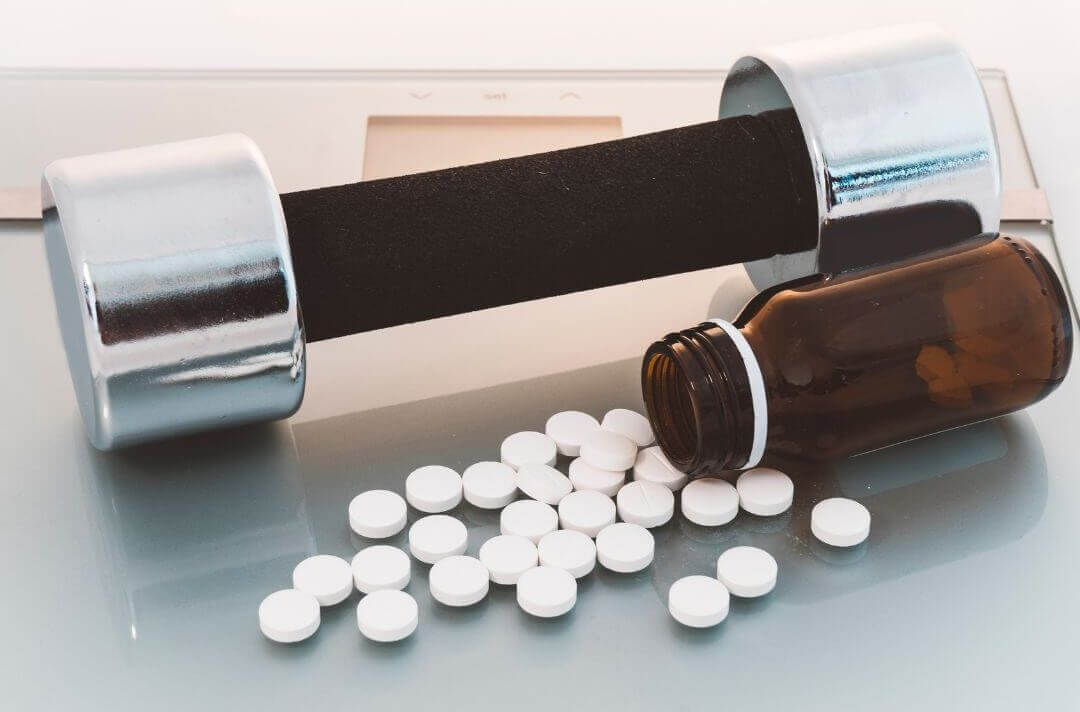Weight Loss Tablets vs Weight Loss Injections: Which Is Best?
-
By: Adam Diwan
-
June 27, 2023
When clients struggle to lose weight independently, and exercise and diets seem to have little impact, they may look to various weight loss aids to help them. With the range of options available, it can be challenging to choose which one is best.
Should your client use weight loss tablets or find injections instead?
To help you, we will explore weight loss treatments and their advantages and drawbacks so you and your patient can make the correct choice.
How does weight loss medication work?
Weight loss medications work differently, depending on which one your client uses. For most, the drug either suppresses the patient’s appetite or impacts how the fat is absorbed in the body.
Treatments like Rybelsus 7mg tablets reduce appetite by slowing down the time it takes for food to leave the stomach. This additional time makes the client feel fuller for longer, so they have fewer hunger cravings and can eat less.
Medications that contain orlistat lessen the fat levels absorbed by the intestines by reducing the work of lipase. Lipase is an enzyme that helps break down fat in the digestive tract. When the lipase doesn’t break down the fat, it passes as waste.
Benefits of Weight Loss Tablets

For patients who dislike needles, weight loss tablets offer a less invasive alternative to losing weight. As people take these tablets orally, this treatment is ideal for clients who cannot have injectable medication for whatever reason.
Rybelsus tablets, for example, are an oral version of the drug semaglutide, found in the weight loss injection Ozempic. Clients can find this treatment style more comfortable due to its non-invasive nature, even if they do not fear needles.
Weight loss tablets are also associated with a reduced risk of complications compared to injections. While injections may carry the risk of infection, bleeding, or other injection-related complications, the tablets eliminate these concerns.
Additionally, weight loss tablets often provide a convenient and discreet option for individuals who prefer incorporating weight loss treatments into their daily routines. With tablets, patients can easily adhere to a prescribed regimen without visiting a medical professional to learn how to administer injections safely.
Disadvantages of Weight Loss Tablets
However, tablets can also have disadvantages.
One is that a client may need to take the tablets more often than they would injections. For example, they may need tablets daily, whereas the patients can administer injections once a week.
Be aware that each medication varies, regardless of its format, so the client must know the dosage and administration directions before using their treatments.
Additionally, there is the possibility of experiencing gastrointestinal issues. Many medications can cause nausea, abdominal pain, diarrhoea, vomiting, and constipation. These side effects can significantly impact a person’s quality of life and may lead to medication discontinuation.
Furthermore, weight loss tablets can sometimes lead to adverse reactions due to their ingredients or mechanisms of action. Depending on an individual’s susceptibility and tolerance, these reactions may range from mild allergic responses to more severe complications.
Advantages of Weight Loss Injections

Introducing new weight loss injection options gives medical professionals and aesthetic nurses an expanded arsenal for assisting clients. With ongoing research and development, medications like Saxenda injections offer innovative weight management approaches, allowing practitioners to tailor treatment plans to individual needs and goals.
Weight loss injections have shown promise in reducing the risks associated with cardiovascular diseases in type 2 diabetes patients. Medical professionals can link excessive weight to an increased likelihood of stroke, heart attack, and heart disease.
Studies have indicated that certain weight loss injections can improve cardiovascular health by lowering blood pressure, reducing cholesterol levels, and decreasing inflammation. This cardiovascular benefit adds significance to weight loss injections as an effective treatment option.
Weight loss injections also offer convenience and compliance advantages. Unlike weight loss tablets, injections often have a longer duration of action, typically administered weekly or monthly.
For example, a patient using Ozempic injections for weight loss should only take them once a week. Implementing a simplified dosing regimen can encourage clients to maintain their treatment plans. However, this timeframe is not always the case, and clients should read the information leaflet accompanying the medication for administration instructions.
Disadvantages of Weight Loss Injections
One potential concern for weight loss injections is pancreatitis, a possible side effect some clients experience. Pancreatitis is a severe pancreas inflammation that can cause abdominal pain, nausea, and vomiting. It is essential to monitor patients closely for any signs or symptoms of this condition.
Vision changes have also been reported in some individuals using weight loss injections. For example, patients with diabetic eye disease (retinopathy) may suffer from poorer vision if they use Ozempic and insulin. Clients with blurred vision or other visual disturbances should take them seriously and seek help from an ophthalmologist or a healthcare provider.
Hypoglycemia, or low blood sugar, is another potential risk. These injections can cause a rapid drop in blood sugar levels, leading to symptoms such as dizziness, confusion, and weakness. Individuals with diabetes or other underlying health conditions may be at a higher risk for experiencing hypoglycemic episodes.
Other side effects include kidney issues and gallbladder problems. These complications can range from mild discomfort to more severe conditions requiring medical intervention. Individuals undergoing weight loss treatments must have regular monitoring for kidney and gallbladder function.
Encouraging individuals to carefully weigh the potential risks and benefits of weight loss injections is crucial. While these injections may expedite weight loss, medical professionals and clients cannot ignore the associated side effects and complications.
A comprehensive approach that includes a healthy diet, regular exercise, and lifestyle modifications should be the foundation of any weight loss journey.
Determining the Best Option for Your Client

When debating semaglutide tablets vs injections for weight loss for your patient, finding the correct one is essential, and their chosen option should reflect their specific needs.
One treatment may not be suitable for everyone, and medical professionals should consider individual circumstances when determining the best approach.
Clients must consult with a medical professional or aesthetic nurse to assess the suitability of weight loss treatments, considering factors such as medical history, potential interactions with other medications, and any underlying health conditions. Collaborate with patients to determine which approach aligns best with their lifestyle and desired outcomes.
It’s important to note that Rybelsus and Ozempic should be part of a comprehensive weight loss program that includes a healthy diet and regular exercise.
Our Ozempic weight loss guide provides more information about how this medication can help your client.
In conclusion, the debate between weight loss tablets and injections has shed light on their respective benefits and considerations. Weight loss tablets offer non-invasive treatment, while weight loss injections can provide cardiovascular benefits.
However, it is crucial to emphasise that choosing the most suitable treatment should be based on individual circumstances, including BMI, weight loss goals, and overall health.
Consulting with a healthcare professional or medical provider is paramount to ensure personalised guidance and monitoring throughout the weight loss journey. Prioritising health and safety should remain the cornerstone of any weight loss endeavour, and professional involvement is vital to achieving optimal outcomes.
Related Posts
-
By: Adam Diwan
-
September 23, 2024
How to Start an Aesthetics Business
-
By: Adam Diwan
-
September 23, 2024
Top 5 Fat-Dissolving Products to Use in Your Clinic
-
By: Adam Diwan
-
July 23, 2024
Top 10 Vitamin Injections for Health and Beauty
-
By: Adam Diwan
-
July 2, 2024
How to Switch from Saxenda to Mounjaro
-
By: Adam Diwan
-
June 25, 2024
Mesotherapy vs Microneedling: A Side Effect Guide
-
By: Adam Diwan
-
June 18, 2024











